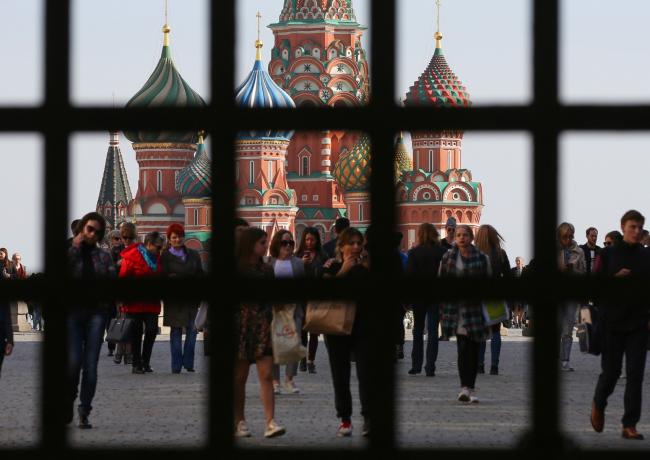(Bloomberg) -- President Donald Trump accused China and Russia of devaluing their currencies, breaking from his own administration’s view that no major trading partners are currency manipulators.
Trump took to Twitter on Monday to declare that China and Russia are playing what he called a “currency devaluation game” at a time when the U.S. Federal Reserve is raising interest rates. “Not acceptable!,’’ Trump wrote.
His comments contradicted a Treasury Department semi-annual report on Friday that refrained from naming any country a currency manipulator based on specific criteria.
A Treasury Department spokesman referred questions to the White House.
The attack added fuel to the brewing trade dispute between the U.S. and China and drew swift criticism from Russia, which the White House recently imposed sanctions on and clashed with over Syria. The Bloomberg Dollar Index slipped to its lowest level since March 26 following Trump’s tweet, while Treasuries fluctuated.
“The basis for this accusation is incomprehensible, and it only elicits a smile, because both business and the government are interested in a stable national currency,” said Anatoly Aksakov, chairman of the financial markets committee of Russia’s lower house of parliament, according to state news service RIA Novosti.
Trump has repeatedly blasted Beijing for failing to reduce its trade surplus and open its markets to American investment. China’s yuan, though, has gained about 10 percent against the dollar over the past 12 months, climbing in March to the strongest level since August 2015.
The ruble has weakened more than 9 percent against the dollar in the past year, with much of the decline following the U.S.’s introduction of sanctions on dozens of Russian tycoons, companies and key allies of President Vladimir Putin. The U.S. said on Monday it will decide in the near future whether to impose additional sanctions against Russia.
Trump’s suggestion that a currency war is on the horizon comes as central bankers and finance ministers from around the world prepare to gather in Washington for the spring meetings of the International Monetary Fund this week.
The Treasury’s foreign currency report on Friday ratcheted up criticism of China’s failure to correct its trade imbalance with America and said the increasingly “non-market direction” of China’s economy presented a risk to global growth. Russia, however, isn’t among the 12-largest trading partners and Switzerland that are assessed in the report. The Treasury said on Friday it was considering expanding the number of economies tracked in the study.
China is evaluating the impact of a gradual yuan depreciation as the country’s leaders weigh their options in the trade spat with the U.S., according to people familiar with the matter. A weaker yuan makes imports from China to the U.S. cheaper, driving up America’s trade deficit. The president has repeatedly complained about the U.S. trade shortfall with China, which reached $337 billion in goods and services last year.
Weak Signal
Trump’s comments on Monday are “another implicit signal of the administration’s desire for a weaker U.S. dollar -- especially against major trading partners,” said Viraj Patel, a London-based currency strategist at ING Groep (AS:INGA) NV. “These weak dollar expectations will remain entrenched in currency markets, especially if the administration continues its mercantilist policy focus.”
Earlier this year, seemingly off-the-cuff remarks from Treasury Secretary Steven Mnuchin that a weaker dollar in the short term benefited the economy roiled currency markets. In January, Trump speaking during a CNBC interview about the situation, said “I don’t like talking” about the dollar. “Because frankly, nobody should be talking about it.”
Read more: How currency wars are like wars for wealth: QuickTake
The U.S. hasn’t branded any country a manipulator since 1994. The department is required by law to report to Congress twice a year on whether America’s major trading partners are gaming their currencies. The report, which began in 2016 under the Obama administration, is the government’s formal channel to impose the manipulator designation, leading to a year of negotiations for a solution and penalties if the practice continues.
Trump backed down from labeling China a currency manipulator after taking office, and the Asian nation only meets one of the three criteria -- for having a large trade surplus with the U.S. -- which are set out by Treasury to designate currency manipulation.
The administration has said it wants to forge currency pacts in new trade deals, such as a revamped North American Free Trade Agreement, to deter currency manipulation.
(Updates with comment from Russia official in sixth paragraph.)
